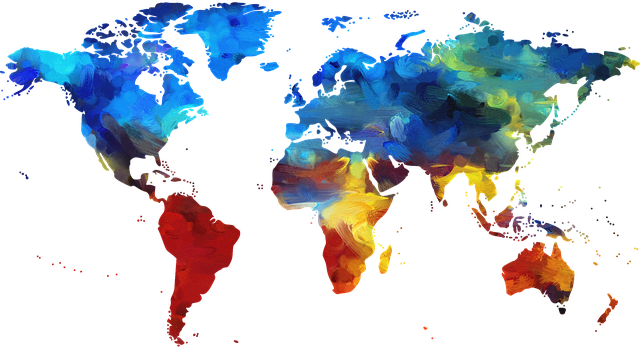Oil Production in Russia Is Back With a Vengeance
Whether Moscow ever really adhered to its agreements to cut production is a matter of debate, but the government’s most recent production data should put that debate to rest. Last month, Russia produced more than 11 million barrels per day – the most it has produced in the post-Soviet era. Russia even has “a few hundred thousand barrels” of spare capacity, according to Energy Minister Alexander Novak, who again said Moscow would be willing to flood the markets even more to offset the loss of Iranian oil come November. One small hitch: Moscow’s deputy energy minister said Russian pipelines to Asia – home to the largest importers of Iranian crude, most of which intend to comply with U.S. sanctions – are operating at maximum capacity already, so any new production would need to be driven by European demand. Global oil flows are extremely liquid (pun intended), given how cheap it is to move crude by ship, so markets will adjust over time. But the devil is always in the details, and this illustrates the inevitability of unforeseen obstacles when countries try to patch up a large and sudden gap in production. Pay attention to Japan and India.
Brexit Is a Mess
A senior British official said Wednesday that Prime Minister Theresa May would soon unveil a new proposal on how to keep the border between Northern Ireland and Ireland, an EU member, open to travel and trade. At risk is the very peace deal that helped to pacify Northern Ireland in the 1990s. May’s plan is to propose measures that could bind Northern Ireland to EU standards on goods. The response from within her own party was near mutinous. Northern Ireland opposes the plan, too. Its ruling party – an indispensable minority coalition partner in May’s Tory-led government – said it would vote against any plan that would make Northern Ireland a “semi-detached province” effectively “annexed” to the EU. Even if it received Northern Irish support, the government in London needs the EU to agree to the plan, which would allow the entire United Kingdom to stay in the bloc’s customs regime at least temporarily – something Brussels and Brexit hard-liners oppose. The whole episode underscores a grimmer reality: The critical risks that Brexit poses to the U.K. are as much political as economic — in particular, that it can be used as a lever in either Northern Ireland or Scotland, both of which voted to remain, to break from the U.K.
The EU Is Busy With Fights of Its Own
On Monday, the European Commission’s vice president threatened to take the Romanian government to court if it failed to make recommended changes to legislation that Brussels says will weaken the independence of the country’s judiciary. On Tuesday, European Commission President Jean-Claude Juncker warned Italy’s new populist government against spending hikes in its proposed 2019 budget. (As of this writing, Italy appears to be backing down, pledging deficit reductions in 2020 and 2021.) The European Parliament voted to cut some 70 million euros worth of pre-accession aid earmarked for Turkey over its failure to make sufficient improvements in the rule of law, democracy, human rights, and press freedom. This, of course, comes as Brussels is tangling over similar issues with Poland and Hungary – effectively, the bulk of Eastern Europe – and with several southern states over immigration-related issues. It is even fighting with Switzerland. No one ever said it would be easy to keep an inherently fractured bloc of countries and their neighbors with starkly conflicting interests and an array of intensifying socio-economic pressures marching in unison.
Honorable Mentions
- France said it would freeze assets of the Iranian Intelligence Ministry after linking it to an alleged bomb plot targeting an exiled Iranian opposition group near Paris in June. Tehran called for talks to clear up the “misunderstanding.”
- U.S. Secretary of State Mike Pompeo is set to hold talks on denuclearization with North Korean leader Kim Jong Un on Sunday in Pyongyang.
- The government in Seoul estimates that North Korea has between 20 and 60 nuclear devices, according to South Korean Unification Minister Cho Myoung-gyon.
- Russian Defense Minister Sergei Shoigu said Moscow has completed delivery of S-300 air defense systems to Syria. Russian President Vladimir Putin is set to travel to New Delhi to ink a $5 billion deal on S-400s.
- Armenian Prime Minister Nikol Pashinyan said he will fire his Cabinet and resign this week to pave the way for fresh elections. He made the pledge while leading mass demonstrations in opposition to measures passed by Armenia’s parliament that may delay the elections.
- Iraq’s parliament ended months of deadlock by electing Kurdish politician Barham Salih as president. Salih then picked Adel Abdul-Mahdi, a former vice president, oil minister and finance minister, to be his prime minister.
- Turkey says Russian forces will not participate in patrols in the newly created demilitarized zone in Idlib province, according to Syrian rebels that oppose the patrols.
- U.S. Commerce Secretary Wilbur Ross reportedly told Congress that the Trump administration is mulling a ban on the export of technologies that China could use in its surveillance and internment of minority Muslims in Xinjiang.
- Vietnamese coast guard vessels are visiting India for the first time amid bilateral talks on maritime security. Last week, an Indian warship paid a four-day port visit to Ho Chi Minh City.
- Japan’s Ground Self-Defense Force held its first joint military exercise with the British army in central Japan.







